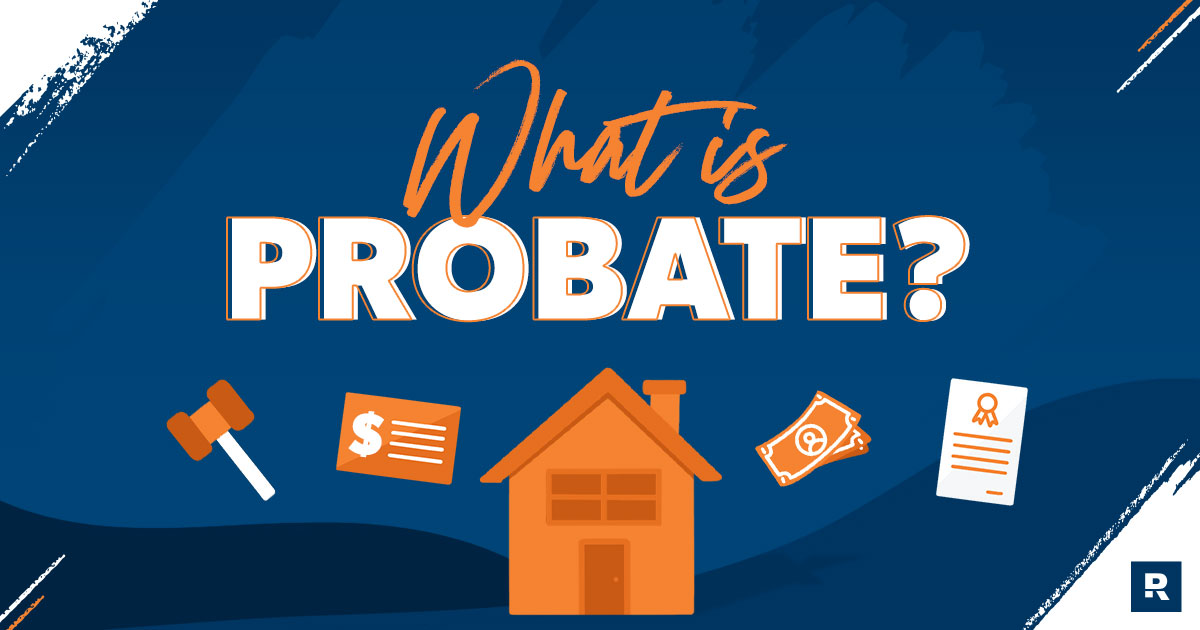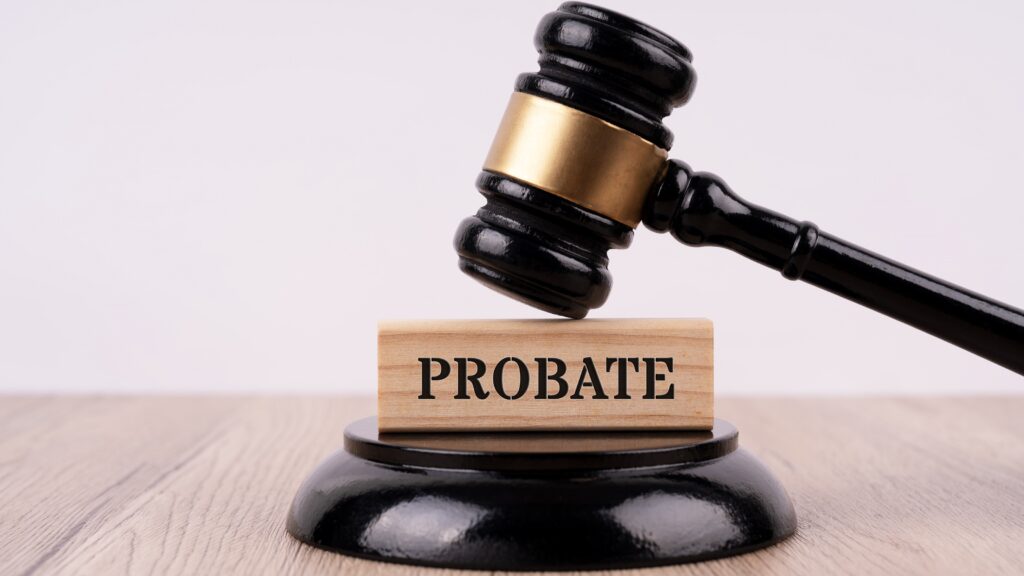Can You Avoid Probate in Texas?
Many Texans ask this question when planning their estates. Probate can be a complex, time-consuming, and costly legal process, so it’s understandable why people want to bypass it. Fortunately, Texas law provides several ways to avoid probate, allowing assets to pass directly to heirs without court intervention. However, avoiding probate isn’t always the best choice, and understanding the pros and cons is crucial.
This comprehensive guide explores probate, when it is required in Texas, and the different ways to avoid it. It also examines the pros and cons of bypassing probate, helping you make informed decisions about your estate planning. This article provides an in-depth look at Texas probate law, equipping you with the knowledge needed to plan your estate effectively.
Probate in Texas: Definition, Purpose, and Process
Probate refers to the legal process of settling a deceased person’s estate. It involves verifying the will (if one exists), identifying assets, paying debts, and distributing the remaining property to the rightful heirs. This process ensures that the deceased’s final wishes are honored and that creditors receive payment before distributing assets to heirs.

Probate is generally supervised by the court. In Texas, the process can be either independent administration (streamlined and less costly) or dependent administration (requiring court oversight for every step). Understanding probate in detail helps individuals make informed decisions about whether they should structure their estate to avoid it.
The Key Functions of Probate in Texas
Probate serves several key functions, including:
- Ensuring Legal Transfer of Assets: Without probate, certain assets cannot be legally transferred to the deceased’s heirs.
- Providing a Legal Framework for Debt Payments: Probate ensures that outstanding debts and obligations are handled before assets are distributed.
- Preventing Fraud: The process requires transparency and legal documentation, reducing the risk of fraudulent claims against the estate.
- Resolving Disputes Among Heirs: If multiple heirs lay claim to the same assets, probate court intervenes to resolve conflicts fairly.
The Probate Process in Texas
The probate process in Texas follows a series of legal steps to ensure that assets are properly distributed. These steps include:
Filing the Will with the Probate Court
If a person dies with a will, the executor named in the will must file it with the county probate court to begin the legal process. If no will exists, the court appoints an administrator to handle the estate.
Identifying and Collecting Assets
The executor or administrator compiles a detailed inventory of all assets, including real estate, bank accounts, stocks, personal property, and business interests. This ensures that all assets are accounted for and appropriately distributed.
Notifying Creditors and Paying Debts
Texas law requires notifying creditors of the person’s passing so they have the opportunity to file claims for outstanding debts. These debts include mortgage payments, credit card balances, medical expenses, and taxes.
Handling Disputes Among Beneficiaries
If disagreements arise among heirs, the probate court may step in to mediate and resolve conflicts.
Distributing Assets to Heirs and Beneficiaries
Once debts are settled, the executor distributes the remaining assets to the rightful heirs as outlined in the will or according to Texas intestacy laws if no will exists.
Finalizing and Closing the Estate
After distributing assets and paying debts, the executor submits final documentation to the probate court for approval, officially closing the estate.
The time required to complete probate varies based on the complexity of the estate and potential disputes. In Texas, probate can take anywhere from a few months to several years if contested.
When Probate Is Required in Texas
Understanding when probate is required in Texas is essential for estate planning. Not all estates must go through probate, but in many situations, it becomes necessary.

Situations That Require Probate
- The Deceased Owned Assets Solely in Their Name
- If the decedent had assets titled only in their name and did not designate beneficiaries, those assets must go through probate. This includes real estate, bank accounts, and personal property. Without probate, there is no legal way to transfer ownership to the heirs.
- No Beneficiary Designations Were Made
- Many financial assets, such as life insurance policies, annuities, and retirement accounts, allow for beneficiary designations. If no beneficiary is named, the asset must go through probate to determine the rightful heir. Keeping beneficiary designations up to date can significantly streamline asset distribution and avoid unnecessary legal hurdles.
- The Estate Is Large or Complex
- Larger estates with multiple assets and heirs often require probate to ensure proper distribution, especially if there are disputes among family members. A contested will, for example, may require court intervention to resolve disagreements among heirs. Additionally, businesses and investments held solely in the deceased’s name often require probate to facilitate their transfer or sale.
- There Is No Valid Will
- When someone dies intestate (without a will), Texas intestacy laws dictate how assets are distributed. In these cases, probate is typically required to oversee the process and ensure compliance with state laws. The court appoints an administrator to handle the estate, which may not align with the deceased’s original intentions. Intestate succession laws prioritize spouses and children, but in cases where no direct relatives exist, assets may be distributed to distant relatives or even claimed by the state.
- The Estate Includes Real Estate Without a Transfer Mechanism
- If the deceased owned real estate but did not place it in a trust or use a transfer-on-death deed, the property must go through probate to be legally transferred to heirs.
How to Avoid Probate in Texas
Texas law offers several legal strategies to bypass probate and simplify the asset transfer process. Below are the most effective methods to avoid probate:
1. Living Trusts
A revocable living trust is one of the most effective ways to avoid probate in Texas. This type of trust allows individuals to place assets in the trust while they are alive and name a successor trustee who will manage the assets upon their death. Since the trust owns the assets, they do not have to go through probate when the trust creator dies.
2. Transfer on Death Deeds (TODDs)
For real estate, Texas allows the use of a Transfer on Death Deed(TODD). This deed lets homeowners name a beneficiary who will automatically inherit the property upon their death, avoiding probate.
3. Payable on Death (POD) and Transfer on Death (TOD) Accounts
Texas allows Payable on Death (POD) bank accounts and Transfer on Death (TOD) securities accounts. These accounts enable account holders to designate beneficiaries who receive the funds upon the owner’s passing without probate.
4. Joint Ownership with Right of Survivorship
Assets owned jointly with right of survivorship automatically pass to the surviving co-owner upon one owner’s death.
5. Small Estate Affidavit
Texas allows a small estate affidavit for estates valued under $75,000 (excluding the homestead and exempt assets). This method simplifies asset distribution without a full probate process.
Benefits and Drawbacks of Avoiding Probate
Benefits
- Saves Time and Money – Probate can be a long and expensive process. Avoiding it can result in faster distribution of assets and fewer legal fees.
- Privacy Protection – Probate records are public, meaning anyone can see details of the estate. Avoiding probate keeps estate matters private.
- Less Stress for Heirs – The probate process can be overwhelming, particularly for grieving families. Avoiding probate simplifies asset distribution.
- Greater Control Over Asset Distribution – By using legal tools such as trusts, you can dictate how and when assets are distributed rather than relying on probate court rulings.

Drawbacks
- Initial Setup Costs – Establishing trusts and other probate-avoidance strategies often require upfront legal fees.
- Ongoing Maintenance – Some probate-avoidance tools, such as revocable trusts, require ongoing management and updates.
- Potential for Legal Challenges – If probate is avoided improperly or heirs dispute the validity of estate planning documents, legal battles can still arise.
- Debt and Tax Implications – Probate provides a structured way to settle debts. Without it, creditors may still pursue claims against the estate, and certain tax benefits may be lost.
Conclusion
Avoiding probate in Texas is possible and often beneficial, but whether it is the right choice depends on your unique circumstances. Avoiding probate can save time, money, and stress, but it requires proactive planning and a clear understanding of legal strategies. Without proper planning, assets may still end up in probate, leading to delays and unnecessary legal expenses.
By utilizing living trusts, TOD deeds, POD accounts, and other probate-avoidance strategies, you can tailor an estate plan that minimizes legal hurdles and maximizes financial benefits for your heirs. Additionally, working with an experienced estate planning attorney can ensure that all documents are legally sound and effectively structured to meet your goals.
It’s important to review your estate plan periodically, particularly after major life changes such as marriage, divorce, birth, or significant financial shifts. Laws change, and ensuring that your plan is up to date can help prevent complications and ensure your final wishes are honored.
Ultimately, thebest estate planning approach is one that aligns with your family’s needs, financial situation, and long-term goals. Whether you decide to avoid probate entirely or utilize certain aspects of the process, taking the time to plan now can provide peace of mind and protect your loved ones from unnecessary legal and financial burdens in the future.








